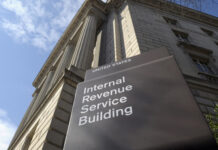PROVIDENCE – The tangible tax paid by Rhode Island businesses on furniture, equipment and machinery is among the many levies extracted by local governments.
The tax on personal property requires businesses, or their accountants, to keep track of the contents of offices and manufacturing plants and determine what is obsolete or in good working condition.
Gov. Gina M. Raimondo’s fiscal 2021 budget suggests it could be a target for reduction. The administration is recommending legislation that would allow towns and cities to exempt small businesses with limited property from taxation. And the governor’s next budget, in fiscal 2022, will include $2.5 million for direct reimbursements to communities that lower their tax rate.
The administration is trying to make the average tangible personal property tax more competitive with other states in the Northeast, according to Stefan Pryor, Rhode Island’s secretary of commerce.
The reason why the reimbursement amount is not included in this year’s budget is because it will be a partial reimbursement and the local governments will have to determine how much, if at all, they will lower their rates, Pryor said.
“We wanted to permit towns the lead time to participate in the process,” he said.
The incentive payments would provide at least a partial reimbursement for municipalities to lower their personal property rates. The community rates vary, led by Central Falls at 7.3%. Smithfield, Johnston and North Providence all have rates of 6 percent or higher. Providence and East Providence have rates of 5.6%. Six communities have rates that fall below that point.
The average rate across communities in Rhode Island is $3.89 for each $1,000 of value, higher than Connecticut, Maryland, Massachusetts, Maine and Vermont.
The tax is among the most disliked of local and state taxes, said Pryor, based on his conversations with business owners at community meetings.
“We asked businesses, predominantly smaller businesses, what taxes get in their way. A number of businesses described their frustration with the tangible tax. For a smaller business, it’s as much a nuisance as it is a financial burden.”
Under the governor’s proposal, communities that agree to cap their rate at 6.5 percent would receive a 50 percent reimbursement of the lost taxes. Those whose rates were lowered to between 5 and 6.5 percent would receive a 25 percent reimbursement, Pryor said.
Mary MacDonald is a staff writer for the PBN. Contact her at macdonald@pbn.com.













